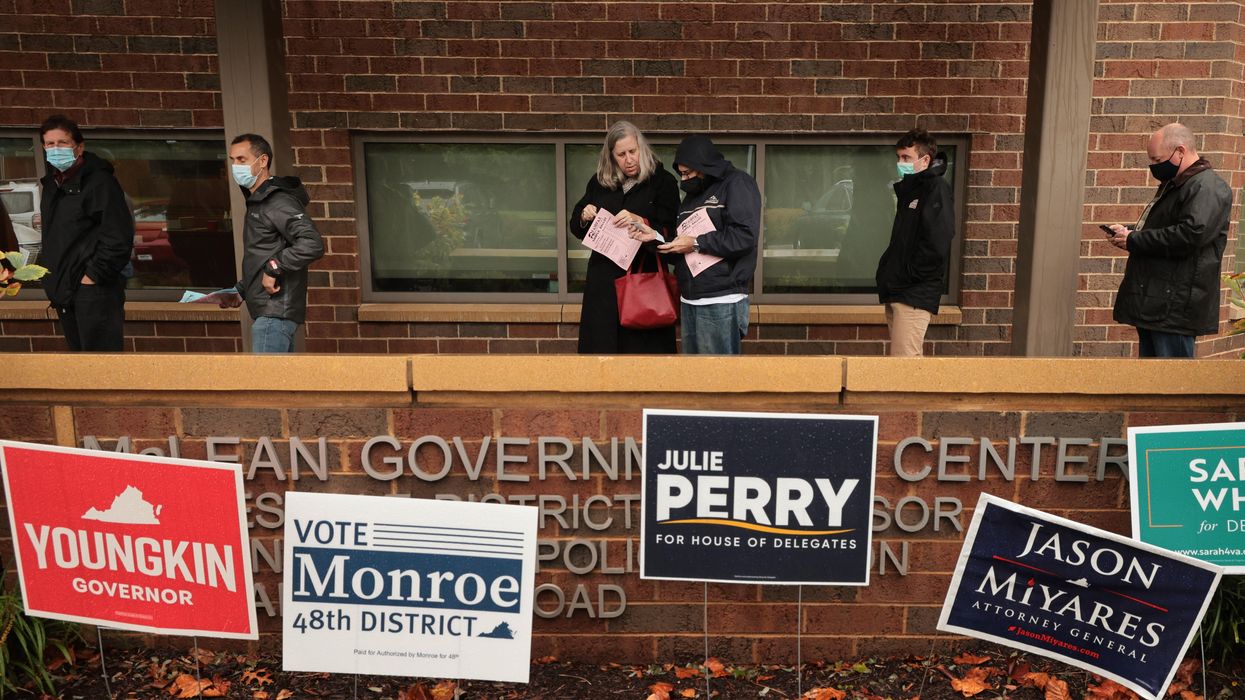While cable news and statehouses are focused on the "big lie" following the 2020 presidential election, a more insidious (and immediate) threat awaits the jurisdictions conducting elections this week: the weaponization of real vulnerabilities in election systems to falsely cast doubt on the integrity of elections overall.
One of the most surprising takeaways from the unsuccessful challenges to the 2020 election results is the level of support they've garnered despite being largely evidence-free. Almost no legal challenges to the presidential election were successful, the difference in vote totals (both actual and electoral) between the two major presidential election candidates was not small, and nearly every voter cast a paper ballot that could be subsequently reviewed.
Consider what could have happened if the challenges to the legitimacy of 2020 had either kernels of truth and/or were associated with a particularly close race? We have no way of knowing for certain, but it's not a stretch to think that our already precarious democracy would be in even more dire straits.
That question may not be so speculative next week, as demonstrated by Virginia's neck-and-neck gubernatorial contest. Putting aside the campaign rhetoric stoking the election conspiracy fire, Virginia's election processes are not perfect. For example, Virginia audits elections every year, but only after the certification of election results. That is important but less than ideal because it means that potentially erroneous election results cannot be changed. Moreover, the post-election audit does not cover the entire state — localities are chosen at random after the election — so it's possible that a problem somewhere in the state would not be identified in the audit.
Along with Virginia, New Jersey also has a race for governor and an imperfect election system. Absent extraordinary circumstances, like a pandemic, New Jersey remains one of only a handful of states that rely heavily on direct recording electronic (DREs) machines that do not print a paper trail backup. DREs are more susceptible to counting errors and malicious attacks than paper-based voting systems, and their use also raises another mis- and disinformation concern: Conspiracy theorists hell bent on further undermining U.S. democracy can more easily manipulate any minor change or error during a vote count, giving false claims of rigging and hacking more traction.
While important to note, such vulnerabilities do not mean that the 2021 New Jersey and Virginia elections are likely to be compromised. Every state's election systems can be strengthened, but that's a far cry from having vulnerabilities that are exploited at such a scale to alter the outcome of an election.
Anyone who asserts that a U.S. election is illegitimate is making an extraordinary claim that needs to be supported by compelling and verifiable evidence. Simply noting the existence of a vulnerability does not mean it has been or will be exploited, let alone that it altered an outcome (though reporting them in a responsible, timely manner to those who work on the fronts lines of our elections can help bolster the security of elections against malign actors).
All states, including Virginia and New Jersey, have election security practices and mechanisms designed to increase confidence in election outcomes. Virginia has all paper ballots and post-election risk-limiting audits to validate its results, and there have not been any issues with the audits since the law mandating them was adopted in 2018. And while most New Jersey counties still use paperless voting on Election Day, the state has put in place a variety of measures to mitigate the accompanying risks, including cybersecurity, physical security, training, updated voting equipment and auditing. Additionally, New Jersey now offers nine days of early voting on paper-based systems and over 900,000 voters signed up to receive their ballots by mail.
It should not come as a shock if bad-faith actors try to exploit vulnerabilities in our election systems in an effort to undermine voter confidence. What would come as a shock is if such efforts succeed in altering the results of an election. I wouldn't bet on it, but this is not a time for complacency.
Voters should be confident in the integrity of their election(s) and if they have questions about their election processes, they should turn to trusted sources of information, such as state and local election officials, who have a proven track record of putting the conduct of free and fair elections before any personal interests. Trust but verify.




















